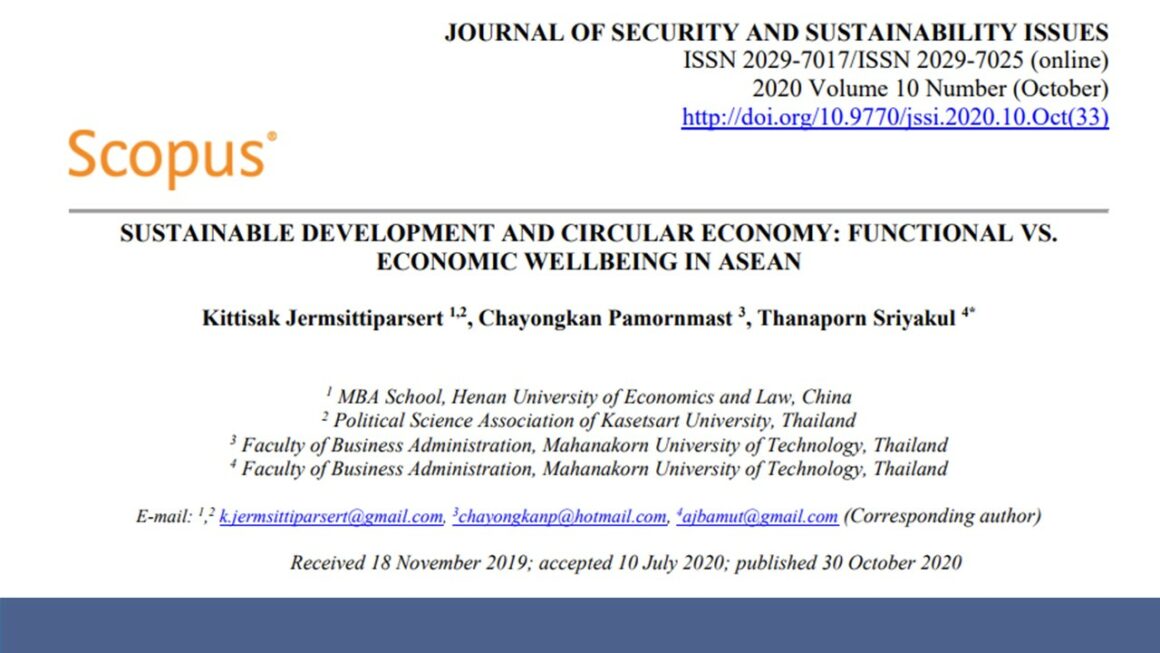This study looked into how the circular economy and sustainable development interrelate in the ASEAN region. The results of this study show that the circular economy in the ASEAN area is significantly impacted by several functional and economic well-being aspects. Country representatives and policymakers, in particular, who are aiming to improve economic output through a circular economy, might gain substantial knowledge from current findings in terms of originality/value.
From 1995 to 2013 with annual observations, five economies (Malaysia, Indonesia, Thailand, Singapore, and the Philippines) were chosen. Functional well-being and economic well-being have been observed as two variables for gauging the factor of sustainable development overall. Additionally, the generation of municipal garbage per population, per GDP, and per DMC are three metrics used to assess the circular economy. The current work has used three models—OLS estimator, fixed effect, and random effect—based on the panel form of the data.
In recent years, experts have paid a lot of attention to sustainable development as well, for the sake of planet Earth. As it looks at sustainability’s two elements, functional wellbeing and economic well-being, this study will also make a valuable addition to that subject. However, integrating CE ownership models and operational principles for sustainable development in many places can also make valuable contributions to future studies.
For full text please visit: http://jssidoi.org/jssi/uploads/papers/40/Jermsittiparsert_Sustainable_development_and_circular_economy_functional_vs_economic_wellbeing_in_ASEAN.pdf


